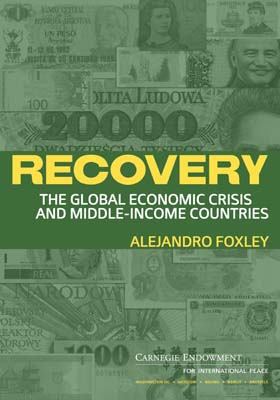There is no single solution to the effects of the financial crisis on middle-income countries, but introducing fundamental labor markets reforms to create high-paying jobs will be the key to restarting economic growth, according to a report by Alejandro Foxley, the former foreign and finance minister of Chile.
Labor reform is always politically contentious, but the current crisis, by illustrating the dangers of ignoring necessary long-term reforms, has made it easier to reach consensus on the need for action. If policy makers undertake the right reforms, middle-income countries could achieve higher growth, better standards of living, and more effective government.
Key points:
- Critical reforms include improving access to education and on-the-job training, reducing the costs of hiring and firing workers, and increasing the number of women in the workforce.
- Unemployment is likely to remain high in middle-income countries as the crisis continues, threatening the stability of governments across Latin America, East Asia, and Eastern Europe.
- Governments must resist the temptation to take populist shortcuts that make it appear that they are dealing with the crisis when they are not, and should instead be clear and consistent in their pursuit of reform.
- Sustainable growth requires a balance between exports and domestic demand. East Asian economies that relied heavily on exports for growth have been hit harder by the crisis than Latin American countries that emphasized domestic demand.
- Diversified trade offers some protection against economic shocks. Middle-income countries should diversify not only their exports but also the markets to which they export.
Foxley concludes:
“There are no magic formulas, no shortcuts, no miracles, and no ‘models’ as far as development is concerned. Economic growth and development is a several-decades-long proposition that requires consistent policies, persistence in moving in a certain direction, and adaptability to shocks and changes and the opportune correction of policy mistakes.”





